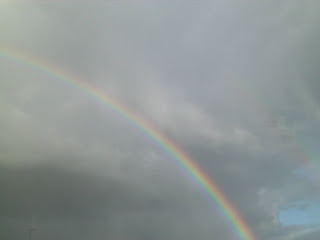Watering Can, a non-Christian guest writer, has written a mathematical analysis of a Christingle service that she attended earlier in the week.
A: [O+LW+S(1+2+3+4)]/JB
or
B: O(3S x 4) + LWJB
or
C: (O + 4S + DC)JB
O = orange (6)
LW = light of the world aka DC = dripping candle to most of us (3)
JB = Jesus’ blood (5)
S = season (4)
It’s no good trying to translate these things into algebra. Arguably, the letters, numbers and signs are extraordinary unfeeling. Also because if you give them a value (yes, the number in brackets at the end) you get different results for each equation.
A: [6+3+4(1+2+3+4)]/5
= (13 x 10)/5
= 130/5
= 26
B: 6({3x4} x 4) + (3 x 5)
= 6(12 x 4) + 15
= (6 x 48) + 15
= 288 + 15
= 303
C: (6 + {4 x 4} + 3) x 5
= (6 + 16 + 3) x 5
= 25 x 5
= 125
But don’t Christingle services produce different results for different people? Some people in the room may be moved to tears, others listening and caught somewhere in thought and some may be completely indifferent. You could also make your own equation whether you had actually been to a service or not. On a more practical note, which values should be assigned to the letters?! I don’t know. I had a reason for some of mine, others I didn’t. Did that affect the result? Absolutely! But then, are those numbers ever going to actually mean anything? Probably not. Does it matter that the result of C is JB cubed? Does it matter that the answer for B has LW on both sides of the zero? Does it matter that A might as well have been JBS + O? Of course not! It’s hard enough trying to translate such occasions into words and using language to describe things, as pebles has already explored.
Though take a look at a Christingle object. Only a handful of numbers there. 1 candle. 1 flame. 4 cocktail sticks. 4 something-or-others on top. 1 orange. So orange is the earth. Hmm. Only one earth. All the more reason for us to look after it. So candle is Jesus. Hmm. Only one ‘Lamb of God.’ All that suffering on one being. So flame is the light of the world. Probably Jesus again. But there are many flames. Who is the light of the world? Who could be, if they tried?















